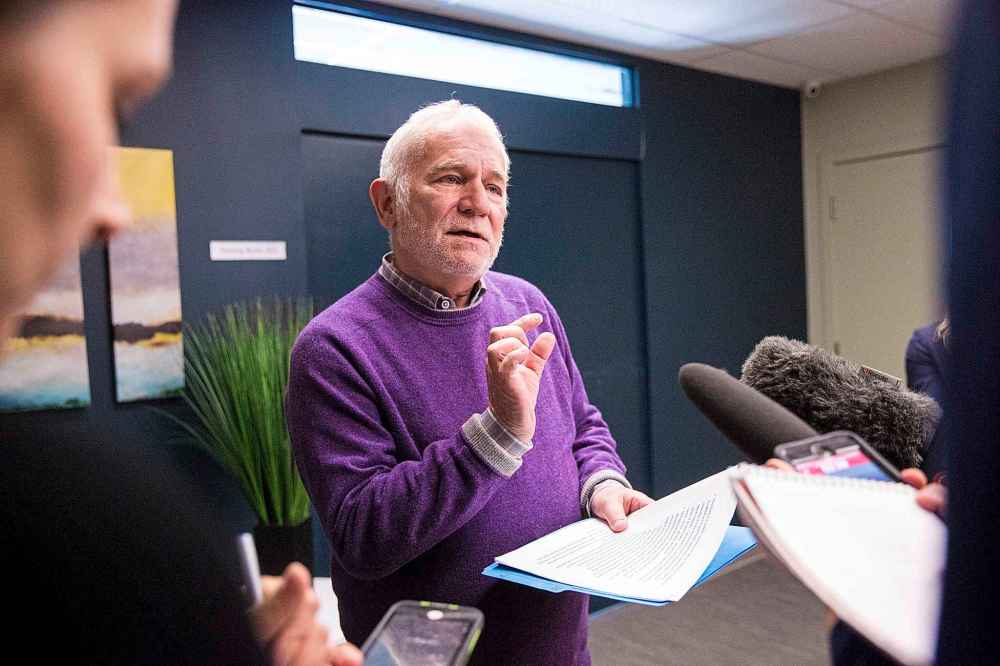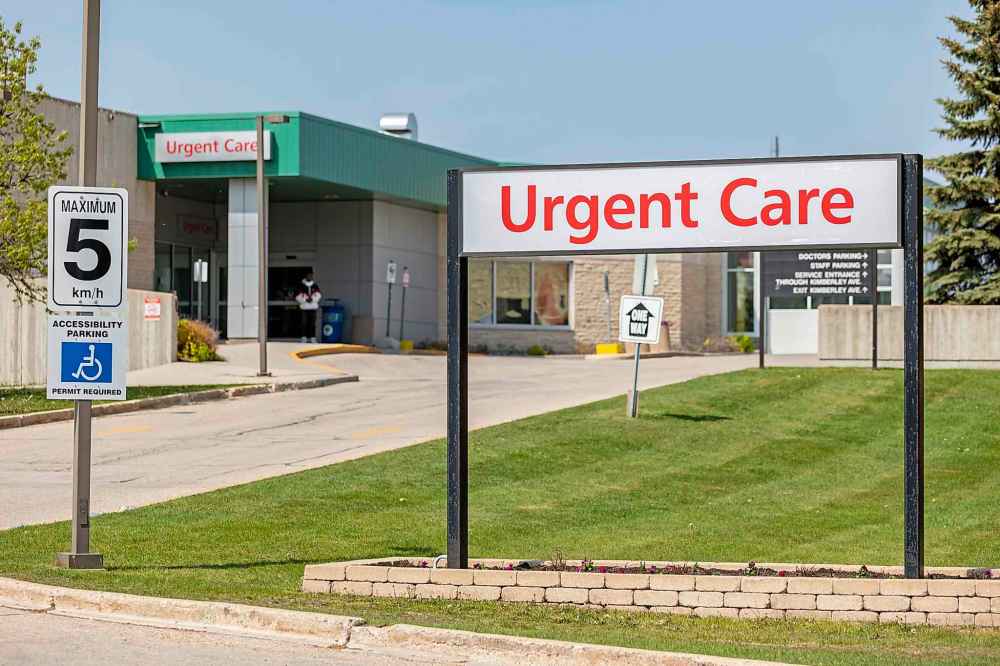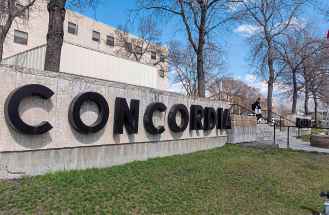Concordia morale ‘seriously low,’ hospital reform report says Doctors, nurses were fleeing untenable working conditions; quality of care suffered
Read this article for free:
or
Already have an account? Log in here »
To continue reading, please subscribe:
Monthly Digital Subscription
$0 for the first 4 weeks*
- Enjoy unlimited reading on winnipegfreepress.com
- Read the E-Edition, our digital replica newspaper
- Access News Break, our award-winning app
- Play interactive puzzles
*No charge for 4 weeks then price increases to the regular rate of $19.00 plus GST every four weeks. Offer available to new and qualified returning subscribers only. Cancel any time.
Monthly Digital Subscription
$4.75/week*
- Enjoy unlimited reading on winnipegfreepress.com
- Read the E-Edition, our digital replica newspaper
- Access News Break, our award-winning app
- Play interactive puzzles
*Billed as $19 plus GST every four weeks. Cancel any time.
To continue reading, please subscribe:
Add Free Press access to your Brandon Sun subscription for only an additional
$1 for the first 4 weeks*
*Your next subscription payment will increase by $1.00 and you will be charged $16.99 plus GST for four weeks. After four weeks, your payment will increase to $23.99 plus GST every four weeks.
Read unlimited articles for free today:
or
Already have an account? Log in here »
Hey there, time traveller!
This article was published 10/06/2019 (2376 days ago), so information in it may no longer be current.
In the days leading to the Pallister government’s decision last month to revise its plans for Concordia Hospital, the northeast Winnipeg health facility was in turmoil.
Doctors and nurses were leaving the hospital in droves, threatening the quality of care and causing the Winnipeg Regional Health Authority to divert ambulances to other facilities. A lack of respiratory therapists at the hospital was also a big concern.
Morale was “seriously low” throughout the building.

On Monday, the Manitoba government released the 72-page report from consultant Dr. David Peachey that formed the basis of its decision in mid-May to convert Concordia’s emergency room to an urgent care centre — and to hit pause on much of the second phase of its Winnipeg hospital reform plan.
Report: Phase II of WRHA Clinical Consolidation
The report is not only blunt in its assessment of the situation at Concordia, but also in its summary of the impact of the hospital reforms in general, noting there had been a failure to conduct important needs and risk assessments in the preceding 18 months.
The document also vindicates the concerns of the Manitoba Nurses Union, which has repeatedly raised the issue of under-staffing, overtime and burnout.
Across the city hospital system, the report said, “workload and staffing instability in the nursing workforce are significant and not sustainable.”
In a section devoted to nursing care across Winnipeg hospitals, Peachey said nurses have been “inadvertently trapped by previously unknown levels of stress,” exacerbated by shift unpredictability, pressure to work overtime, and “under-resourcing,” as a result of the hospital consolidation.
“It has reached the point where nurses can fear going to work, as they may not be able to return home due to requested and mandated overtime,” he wrote.
“It has reached the point where nurses can fear going to work, as they may not be able to return home due to requested and mandated overtime.” – excerpt from 72-page report on Winnipeg hospital reform
Health Minister Cameron Friesen announced May 2 that Peachey, whose research had formed the blueprint for the Pallister government’s health reforms, would be reviewing the progress of the second phase of hospital reforms.
The first phase had included closing the urgent care centre at Misericordia Health Centre and transforming Victoria General Hospital’s ER into an urgent care centre.
Peachey delivered his report May 15; two days later, Friesen called a news conference to slow the Phase 2 process and announce a 24-7 urgent care centre would replace Concordia’s ER. The government’s original plan had called for a walk-in clinic that would be open 12 hours a day, seven days a week.
On June 3, Concordia’s ER switched to an urgent care centre, weeks earlier than scheduled.
Friesen told reporters Monday, since receiving Peachey’s report, the health system has introduced “better processes” to ensure concerns are addressed when they’re raised by staff.
“It is clear from this report that not everything went according to plan,” he said. “I can tell you today it’s not the same system as the one that David Peachey scrutinized again five weeks ago.”
Responding to suggestions the government glossed over some of the report’s biggest problems when it responded to it more than a month ago, Friesen noted the document’s recommendations were released at the time.
“We published the report (Monday) because we don’t have anything to hide,” he added.

In his report, Peachey wrote while the government’s hospital transformation plan is correct “the timelines are not workable.”
At Concordia, health professionals weren’t waiting for the ER to close in June to move on.
“Significant numbers of family physicians, anaesthesiologists and surgeons” were preparing to exit early, “in no small part due to medical-legal risks,” the report said. “Early resignations by intensive care nurses (have) escalated to a high vacancy rate and reduction of one intensive care bed, necessitating interim staffing strategies that do not appear sustainable.”
Meanwhile, the continued operation of the 12-bed sub-acute care unit was threatened by a lack of doctors, nurses, occupational therapists, and physiotherapists.
Peachey made several observations about the impact of reforms on other hospitals, and the system as a whole.
Commenting on city ERs in general, he said “there is a deep-seated unhappiness” among emergency department nurses and physicians. “Concerns were expressed that the planning for the region was implemented by directive rather than reasoned consultation.”“It is clear from this report that not everything went according to plan.” – Health Minister Cameron Friesen
The report said the “previously negligible” wait list for cardiac surgery has grown to about 100 patients, due largely to under-staffing of cardiac nurse specialists and the inability to sustain nursing overtime.
At St. Boniface Hospital, “staff and nursing workload(s)” have “increased substantially, and morale is low,” Peachey wrote, while funding has not kept up with current needs.
“Necessary infrastructure support has not been put in place — investment is required in the emergency department, intensive care unit and critical care,” he wrote. The pending changes at Seven Oaks General Hospital, which is slated to see its ER converted to an urgent care centre in September, will “exacerbate” the current state of affairs at St. B, he added.

Manitoba Nurses Union president Darlene Jackson said she feels her union was vindicated by parts of the report.
She said her main concern is it doesn’t adequately address how serious problems, such as high workloads and frequent use of mandatory overtime, are going to be resolved.
Jackson said she’s worried the severe staffing problems that occurred at Concordia will repeat themselves at Seven Oaks as September approaches.
NDP Leader Wab Kinew said the report shows the government failed to adequately monitor the impact of its health-care changes.
He said the report also illustrates the big disconnect between how WRHA officials see the hospital reforms progressing and how they’re viewed by front-line staff.
larry.kusch@freepress.mb.ca

Our newsroom depends on a growing audience of readers to power our journalism. If you are not a paid reader, please consider becoming a subscriber.
Our newsroom depends on its audience of readers to power our journalism. Thank you for your support.









